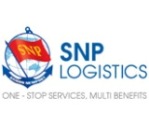The European Commission said today it hasn’t found any anti-competitive issues with the proposed P3 Network, giving the vessel-sharing agreement involving the three largest global container lines safe harbor on the continent.
Maersk Line, CMA CGM and Mediterranean Shipping Co. are still awaiting approval from Chinese authorities. Maersk had said recently that it expects Chinese authorities to announce their decision sometime this month. Although the P3 was considered to be on solid ground in Europe because European Union regulators don’t consider it a merger, there was still lingering concern that authorities would find it violated anti-competitive rules and reject the consortium. European regulators can dissolve the alliance if they determine it violates Article 101 of the Treaty on the Functioning of the EU.
“The partners will now continue their close cooperation with competition and maritime authorities in amongst China and South Korea to address questions and to explain the nature of P3,” CMA CGM said in a statement expressing its pleasure with the EU decision.
The U.S. Federal Maritime Commission in March voted to allow the P3 to take effect in the U.S. The trio had announced last month they would delay operations until September until they received full regulatory approval and to avoid disruption that would come from implementing the alliance during the peak holiday shipping season. The proposed alliance, which would initially involve 252 vessels totaling 2.6 million TEUs on east-west routes, would be the world’s largest carrier alliance. Since the ships operated by the P3 will be larger on average than ones operated by the other major alliances, including the G6 and CKYHE, it will put the carriers at a cost advantage over most of the rest of the industry.
Shippers’ stances on the proposed alliance, which is unprecedented in terms of capacity, have been mixed. Some shipper groups believe the alliance will improve services, while others fear the trio will control too much of the market. The P3 carriers stress the proposed alliance is operational only, so there will be no joint marketing, sales or discussion of rates. The P3 will control 42 percent of Asia-Europe capacity, 24 percent of trans-Pacific capacity and 40 to 42 percent on the trans-Atlantic, according to the FMC.
The Journal of Commerce




.jpg)








